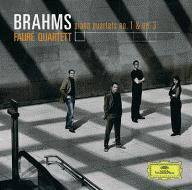What's in a review...
What's the point in writing a review? Doesn't anybody really care what I think
This has been a busy week with the Philip Glass' Day's and Nights Festival. Add to it a variety of new CD's coming out in August/September getting ready for the Fall/Winter sales and I've a lot of reviews to get done. One of my friends asked me why I review music the other day, with the ancillary question, "does anyone read them?"Studies show blog and print media reviews have little to no effect on whether audience members actually go see a performance. This last case is even truer in the classical music world where a performance is seldom repeated, so a review is really only after the performance and has no bearing on getting audience members to buy tickets – at least not to the specific performance reviewed. However, there is the potential of using cut quotes --phrases or sentences from the review in future advertising. As such, festival and performers still like to have their concerts reviewed.
This concept of future publicity is particularly important for classical music. The musicians at the Days and Nights Festival will be performing in other venues and other festivals. Anything I have nice to say may well be used to promote those performers in their future concerts. You often see artist websites showing pull quotes from various past performances to highlight their expertise. When marketing a CD there are press releases prior to the CD release, when the CD is released and concert publicity which hopes to drive more CD sales. A good review of a CD (even just a short half sentence) can make an artist seam more appealing, provide a sense of worth, particularly to a potential audience that isn’t familiar with the artist. Considering there are literally dozens of world class violinists trying to make their living as solo performers, having a few “good words” to include with their press releases can make a huge difference in both audience attendance and sales of their CD at their performances.
Having said all this, what sort of reviews do I write? If the artists need “good words” to use for publicity shouldn’t I just write a glowing review each time?
Well, no. Some of the people reading my reviews are fellow concert goers. If they saw the same concert I did and it wasn’t particularly thrilling, but I wrote a glowing review anything else I might say would also be suspect. Several newspaper reviews have been criticized for doing just this thing --oddly enough, by the artists themselves. If the reviewer is "known" for only writing good reviews than the quotes have no value. The artists themselves are also aware when a reviewer is padding the performance – so good reviews (although they might still get used in general press releases if there isn’t anything else to be had) can actually hurt an artist in the classical music community. Using too many false reviews to inflate an artist’s status can bring into question just how good the artist really is. Again, when there are so many people trying to make a living in classical music, having the quality of your performances in question is not a good thing. So, reviews need to be honest.
Do reviewers get too technical in their reviews?
Yes and no. I suppose some of my reviews do go into a bit more detail than the common person might care about, particularly since live performance reviews are of a given night and not an experience my readers will get to share. But, providing details, specific elements of the concert that I liked (or didn’t) does two things: It is evidence I was actually in attendance at the concert and not just writing a generic review, and it speaks specifically as to the why I felt something worked or didn’t. IF, as an audience member, I speak about a moment that didn’t work and I list the reason, the reason may very well be just what someone else is looking for in a performance.
Also, there is the concert for the performer. If I mention aspects of the performance that don’t work, the performers have the chance to review what they did and see if they might want to make changes. I seriously doubt if many of the world class performers are going to take what I say with too much concern – but, by providing the detail, they have the opportunity to examine and improve their performance. As a performer myself that is exactly what I want in a review – a second opinion as to what I can do to improve.
In the end, I write reviews to provide feedback to performers and fellow future audience members. I endeavor to always write the truth, but remind the performers my reviews are just my opinion. Each review takes a fair amount of time as I feel the performers spent a great deal of time preparing for the performance, the least I can do is show them respect for their effort by putting in some effort of my own in the review. Personally, I think I write pretty good reviews. As yet I have not received any comments about my reviews being off base in my judgment of the performance. I do have numerous comments and personal emails from fellow audience members who have agreed with my statements.

Comments